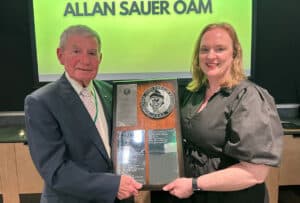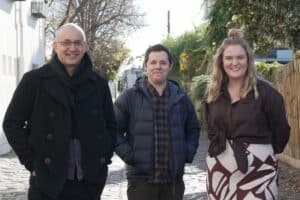
By Bishop Brad Billings
2 April 2022
Is the parish system now yesterday’s model of ministry, unneeded in the 21st century? Is it a dead weight we drag around with us? Or, is parish at least part of the mix in whatever form the “mixed economy” church will take in the post-pandemic future? These are all questions being asked by many across the Anglican Communion about the role of parish ministry into the future.
Like many Anglicans around the world these questions have come to the fore over the past two years when the assumed presence of the parish became, shockingly, unavailable in person. It is perhaps a case of not realising what you have, until you don’t have it!
I should pause at this juncture and define “the parish.” By this, I mean the traditional model of parish, which is a geographical area with a church and a vicar. It is a structure that most Anglicans around the world would immediately recognise, and which the vast majority of the faithful will have direct experience of.
What I am increasingly noticing in the post-pandemic world is that there is a great need all around us, and a yearning for, community. Specifically, for local community. Within that again, it is for human-to-human fellowship, the sort of fellowship that comes from being together with others in a communal setting. We all felt the importance of this when it became unavailable to so many during the pandemic. Many people have a desire, often unexpressed but seen in a variety of ways, for the familiar and for the local. In many communities and suburbs and towns there is nothing more familiar and more local than the parish church.
What I am suggesting is that a renewed emphasis on the parish and on parish ministry is what the church needs after the pandemic. It will often be welcomed, and may even result in increased vitality for the church.
There are two important aspects of this thesis that occur to me, that are worthy of further prayerful consideration as we contemplate our future as Anglicans.
Firstly, I was recently in the centre of an overseas city which I won’t name. I wanted to enter a large and historic parish church. This church was in the middle of a pedestrian mall, next to two pubs and the bustling city market, but was completely fenced off by a high, spiked iron gate, every door closed as if shutting out the world, while people flowed all around it. Now, is not the time for the tragedy of the closed church door. Every parish church, within reason and as much as possible, and every parish clergyperson, should be visible and accessible to their community.
Secondly, the gospel, at its heart, is about relationships – with God and with each other. The ministry of the people of God should reflect this.
There is a real and urgent need for what might be described as traditional parish ministry. What this looks like will be different, according to the needs of different communities and ministries. But the hallmarks are things such as:
- A vicar who is known to his or her community by name and on sight.
- The faithful saying of the daily office at which all are welcomed.
- The regular conduct of the liturgies of the church and the administration of the sacraments on Sundays and on other occasions that are open to all, however unglamorous the service may be.
- And, perhaps most importantly, carrying out a regime of good, old-fashioned pastoral visiting, of both the needy and the unneedy, the grateful and the reticent, and the faithful and faithless.
What I am suggesting is that our present times may be a catalyst for returning our attention and energy to regular, sustained, faithful ministry of a local presence, like that which has been the stuff of parish ministry for centuries. In our dire need to meet the many challenges of church decline we see all around us, we have, it seems, often lifted our gaze from things familiar, in search of the new and innovative.
But the very fact of a presence, physical and human, may be the most powerful witness and the greatest form of evangelism we have at this time. Perhaps best of all, this is not another program, it is not a new cost, nor is it a new and further call on the energy and capacity of already over-stretched people to do more.
Our presence is already there, because it is already who we are and what we do as Anglicans.
One of the paradoxes of the church is that we often look for the answer to our difficulties externally, in the latest program, podcast, or church fad. Often the answer is actually already present, and in this case literally, right there in front of us.
Bishop Brad Billings is director of theological education for the Anglican Diocese of Melbourne.






